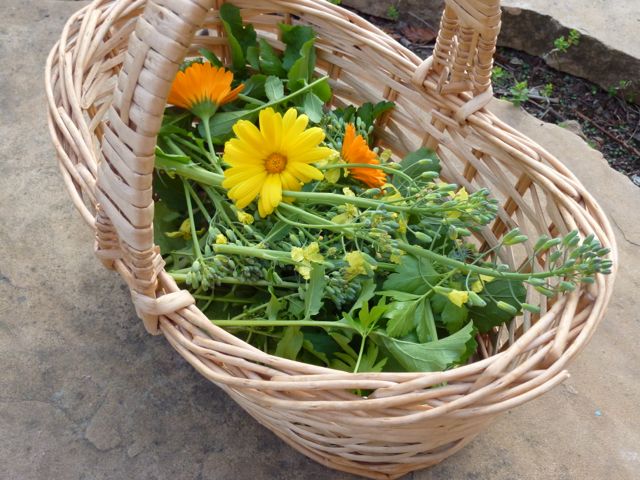 This week is a perfect time to think about Mom. It’s her day on Sunday, April 22. No, I’m not talking about the ladies that raised us. I’m talking about the big, round one. The one whose back we straddle, and whose precious resources fuel our lives. Unfortunately this is the same grande dame that suffers silently at our hands — buried in our copious piles of trash and indelibly altered by our ever-accumulating greenhouse-gas emissions.
This week is a perfect time to think about Mom. It’s her day on Sunday, April 22. No, I’m not talking about the ladies that raised us. I’m talking about the big, round one. The one whose back we straddle, and whose precious resources fuel our lives. Unfortunately this is the same grande dame that suffers silently at our hands — buried in our copious piles of trash and indelibly altered by our ever-accumulating greenhouse-gas emissions.
With Earth Day just around the corner, it’s an appropriate time to think about how we care for our Mother planet. And how we can do better. It might feel as if our personal role is miniscule in the face of a world riddled with bad habits, but each green step, no matter what size, moves us in the right direction. Our food habits matter. Here is some food for thought for Earth Day.
•Eat less meat. Not surprisingly this is an underreported story in a meat-oriented culture, and probably the single biggest way our dietary choices can help the environment. Facts are that the meat industry produces more carbon dioxide and other greenhouse gases than transportation and industry. And as we experience a meat-eating renaissance of sorts — with DIY butchery and nose-to-tail eating — our carnivorous habits are on the rise. This not to suggest that vegetarianism is a viable option for most or that the nose-to-tail movement isn’t onto something important. There’s no moral judgment involved. Just the simple fact that eating one less hamburger saves the equivalent of a 10-mile drive in a 3,000 pound car. So, let’s try a meat-free Monday, now and then.
•Eat fresh food. Every time we pass on packaged food we’ve eliminated solid waste. Yes, some packaging can be recycled, but avoiding it in the first place is even better for the earth. For us, too. No unpronounceable additives or preservatives. Just food. Pure and simple. And it’s not just about trash. There’s the environmental cost of creating the package — the chemicals, energy and resource use for something that has questionable value.
•Eat fresh, organic, seasonal food. As Freshness Farms participants we’re already on our way — less chemicals on the earth and in our diets. Organic may be slightly more expensive, but the seasonal aspect lowers costs with greater supply. Plus the food simply tastes better — think luscious, fragrant spring strawberry versus dull, tasteless winter one.
•Eat the whole thing. Nose-to-tail, root-to-stem. However you look at it, thrifty eating makes environmental sense. Earlier generations lived this way because of economic necessity and scarcity (abundance is a relatively new concept in our world). Today as we consider resource use, the notion is as current as ever. If a hamburger takes the energy of a 10-mile drive to produce, we can’t afford to waste any part of the animal. Plants either. They have a resource cost as well.
•Let it rot. If we can’t find a way to turn our scraps into something edible, we mustn’t toss them in the trash. There’s no reason not to compost when we consider how easy it has become with self-turning, electric units small enough to fit in a kitchen cabinet. Reduce trash. And feed the Earth in the process.
Recipes for the Week
Spinach, Lemon and Couscous Salad
Roasted Broccoli and Tomato Pasta
Quick Tips for using this week’s Freshness Farms Bounty:
Toast bread, then top with goat cheese and sliced strawberries. Add a few sprigs of spring herbs. Maybe a drizzle of balsamic vinegar.
Sauté romaine (cut into one-inch strips) in olive oil, minced garlic and red pepper flakes until barely wilted and still crunchy. For an Asian-inspired variation, add some minced ginger root plus a splash of soy sauce and rice vinegar.
Cut fennel bulb into large chunks and roast (coated with olive oil). Add some onions or tomatoes to the pan. Or shave raw fennel and add to salads. It pairs nicely with cilantro, beets, citrus and celery.

